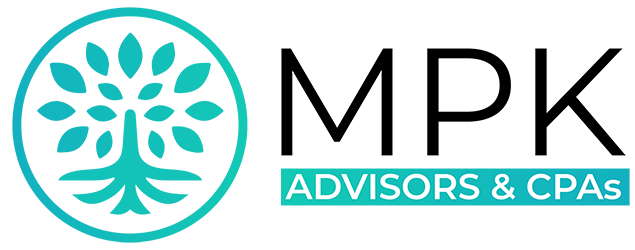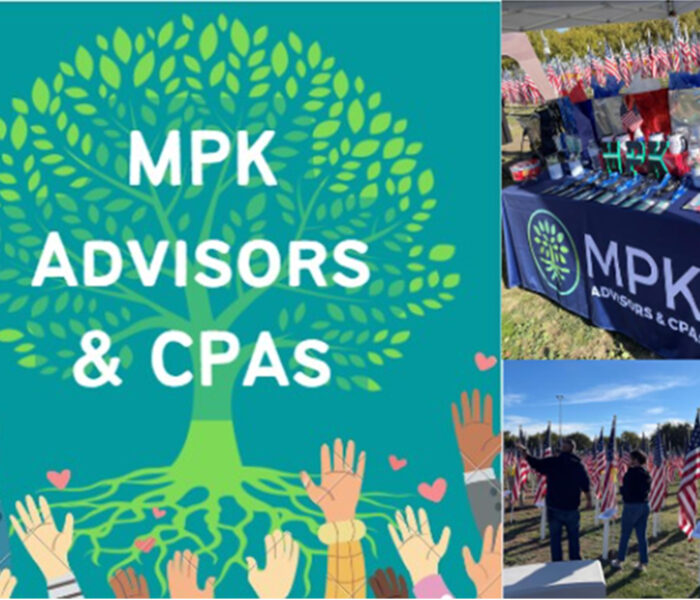Mid Year Planning
Now's The Time - Part 1
Business Planning
Below are some of the most important and accessible tax planning strategies that you can employ relatively immediately for business planning purposes:
Start a retirement plan for your business: A retirement plan can not only reduce your taxable income as an owner/shareholder, but can also reduce the taxable income of your employees. There are also tax credits available to the employer for the initial cost of setting up and administering the plan. Depending on the plan: 401K, SEP, Simple, etc., the employer can contribute also through profit sharing, which can further reduce business taxable income. Profit sharing contributions often can be made after the prior year end, and designated as a prior year expense, making it an attractive strategy if you need to reduce taxable income after the applicable year ends.
Plan for inventory at year end: Many companies that have inventory don’t do a physical inventory count at the end of the year, this could be a disadvantage when the company is “estimating” their inventory, Often, the inventory is under or over-estimated, which could affect the profitability and taxable income of the business. There could also be obsolete inventory on the books that should be written off, which would increase the company’s cost of goods sold and decrease the taxable income.
Mid-year accounting clean-up and projections: Have the books been kept up to date? Have the bank accounts, credit cards and loan accounts been reconciled? Are accounts receivables accounted for and collected, and have the aging reports been reviewed for old amounts outstanding? Do you know the company’s financial standing compared to the previous year? If the books aren’t kept current the company doesn’t have an accurate view of its operating results and is unable to make good financial decisions accordingly. Having the books up to date on a monthly or quarterly basis gives the owner a good understanding of the earnings and costs connected with the business. Also, by keeping the books up to date, the CPA can do a mid-year projection and adjust any estimated tax payments, if necessary, thereby reducing any possible underpayment penalties and interest and planning for the total annual tax liability.
Business Mileage and Auto Expenses: Tracking and claiming your vehicle mileage by using logs or phone apps, can make a significant difference in reducing your taxable income. The current IRS mileage reimbursement rate is 65.5 cents per mile, which can provide a significant deduction if tracked properly. If you are using a vehicle in your business, less than 50%, the mileage method is required, and depending on the circumstances, even if the vehicle is used more than 50% in the business, the mileage method may be your best choice instead of actual expenses. Often people “estimate” their mileage and in most cases that estimate is not accurate and you could be losing a valuable deduction. Also, vehicle expenses are one of the top expense categories the IRS will look at when auditing a taxpayer.
Business use of home: You may be missing out on this valuable and often overlooked tax savings strategy without proper planning. A sole proprietorship, partnership or LLC may qualify for a home office deduction, however, an S Corporation Shareholder does not, but with proper planning the cost of maintaining a qualified home office could be deductible.
If you primarily use a home office to meet regularly with clients or conduct a significant amount of your administrative activities from this office, and use the office exclusively for business, this tax savings strategy should be considered. The treatment and strategy must be tailored depending on the legal structure of your business. We can help you set up the structure for this.
If you would like more information on any of the topics covered or any other tax topics, please contact our office and we could provide you with an electronic brochure on the topic.
MPK Advisors & CPAs is now offering advisory services as well, ranging from basic business startup and operations topics to buying and selling a business. Please ask us how we can help you proactively set up good business practices from the very beginning, and plan for any significant business decisions! This is all consistent with our mission to help our clients make more confident financial decisions.
(Look for individual tax planning in our July Blog)





